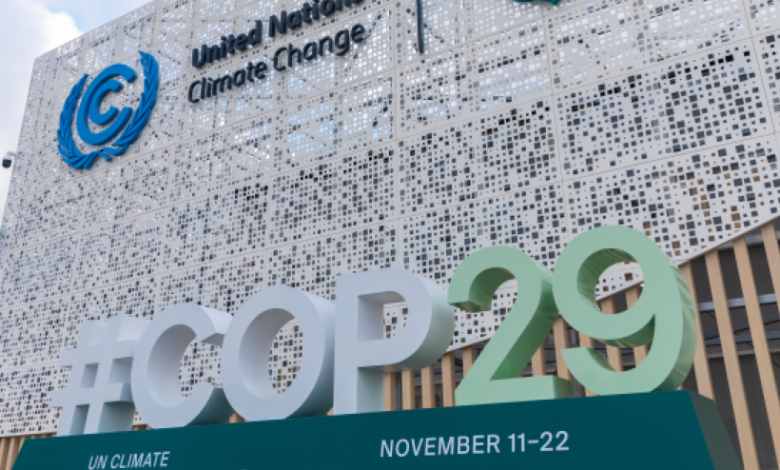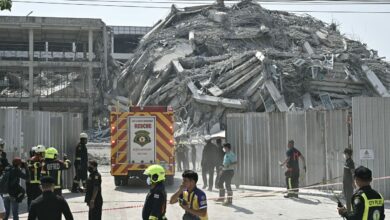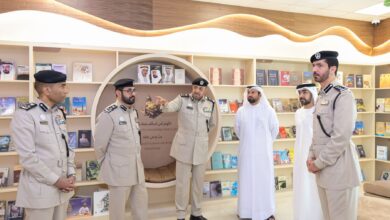
For the UAE, COP29 represents another opportunity to lead by example, continue building global partnerships, and drive the international community toward climate action
As the 2024 United Nations Climate Change Conference of the Parties (COP29) opens its doors in Baku, Azerbaijan, from November 11 to 22, the world is once again focusing on the urgent need for action on climate change.
To limit global warming to 1.5°C, COP29 will build on the progress made at previous conferences, particularly COP28, to accelerate the transformation of global economies, bolster climate resilience, and address the pressing challenges posed by climate change.
The UAE’s continued leadership in climate action
The UAE, which hosted COP28 in December 2023, will play a prominent role in COP29. Its participation builds on the success of COP28, where the country introduced the UAE Consensus and the Climate Action Agenda, which laid out clear targets across various sectors, from energy transition to climate finance and nature preservation.
The UAE is bringing this momentum to Baku, with a renewed vision focused on driving global climate action and advancing initiatives that ensure no nation is left behind, particularly vulnerable communities in the Global South.
The UAE’s national pavilion at COP29, titled Accelerating Action Together, will serve as a hub for dialogue, collaboration, and solution-building throughout the two-week conference.
With over 60 thematic side events, the pavilion will spotlight initiatives to mobilise climate finance, accelerate the transition to renewable energy, address food and water security, and drive decarbonisation in hard-to-abate sectors.
The UAE will also highlight its leadership in biodiversity protection and its ongoing efforts to implement the Global Climate Finance Framework, which aims to unlock billions in funding for climate adaptation and mitigation, particularly for developing nations.
Focus on climate finance and global resilience
One of the central themes at COP29 will be climate finance — specifically, the establishment of a new climate finance goal that ensures all nations, particularly developing countries, have the resources needed to tackle climate change.
The UAE has long championed the need for greater climate finance, particularly for small island developing states (SIDS) and least developed countries (LDCs) that are the most vulnerable to the effects of climate change.
The Loss and Damage Fund, agreed upon at COP27, will also be a key area of focus at COP29.
The goal is to operationalise the fund, providing financial support to countries facing the worst impacts of climate change. The UAE has made significant contributions to climate finance and has been a vocal advocate for increasing both public and private sector investments to meet global climate goals.
As part of its commitment, the UAE will continue to push for increased funding for adaptation and resilience-building efforts, alongside efforts to decarbonise key industries.
Building on the UAE’s COP28 legacy
At COP28, the UAE led the call for a more inclusive climate approach that brought together diverse voices from across the globe. This model of inclusivity will continue to shape discussions at COP29.
The UAE’s initiatives at COP28, including the UAE Declaration on Sustainable Agriculture and the UAE Declaration on Climate Relief, Recovery, and Peace, set important precedents for how climate action can be made more equitable and impactful.
These initiatives will continue to guide the UAE’s participation at COP29, reinforcing its commitment to supporting the most vulnerable communities.
The UAE’s focus on green innovation is also expected to be a key topic at COP29, with the UAE Pavilion hosting discussions on how emerging technologies, such as artificial intelligence (AI), can be leveraged to tackle climate challenges like food security and water scarcity.
Additionally, the UAE will continue to advocate for circular economy principles, highlighting how sustainable urban planning and waste management can drive both environmental and economic resilience.
Programming highlights and global partnerships
COP29’s official programme offers a comprehensive set of events, panels, and workshops aimed at tackling the most critical climate issues. The conference will be divided into two main zones: the Blue Zone, where formal negotiations take place, and the Green Zone, which is open to the public and offers a space for exhibitions, workshops, and cultural events.
For the UAE, COP29 is an opportunity to continue championing global partnerships. The UAE has made significant strides in renewable energy, decarbonisation, and climate finance, and will highlight progress in its collaborations with global organizations such as the Food and Agriculture Organization (FAO), AIM4Climate, and the Mangrove Breakthrough.
These partnerships are essential in the drive toward a net-zero future and will be central to discussions in Baku.
The UAE will also place significant emphasis on empowering youth and ensuring that the next generation is included in climate policymaking.
Youth leadership in climate action will be a key topic at the UAE Pavilion, reflecting the country’s broader commitment to fostering a new wave of climate advocates and innovators.
COP29: The path forward
COP29 in Baku comes at a critical moment in the global climate agenda. The world faces increasing pressures from climate impacts, including extreme weather events, rising sea levels, and biodiversity loss.
The commitments made at COP29 will be essential in determining whether the world can achieve the goal of limiting global warming to 1.5°C and whether climate resilience can be built in the most vulnerable communities.
As negotiators gather in Baku, one of the most important tasks will be finalizing the Global Climate Finance Framework, which aims to unlock the necessary funding for climate mitigation and adaptation.
The Nationally Determined Contributions (NDCs) submitted by countries will be scrutinized to ensure they align with the 1.5°C target.
Additionally, there is growing pressure to implement the National Adaptation Plans (NAPs), ensuring that every country is prepared for the climate impacts that are already being felt.
COP29 will also advance discussions on carbon markets, nature-based solutions, and technological innovations, all of which will play critical roles in achieving global climate goals.
The hope is that the conference will drive not only a sense of urgency but also a shared commitment to cooperative action, ensuring that the international community can meet the challenges of climate change head-on.
Source: Gulfbusiness


